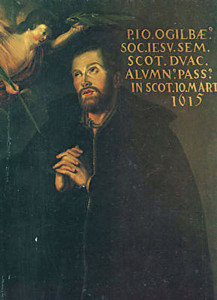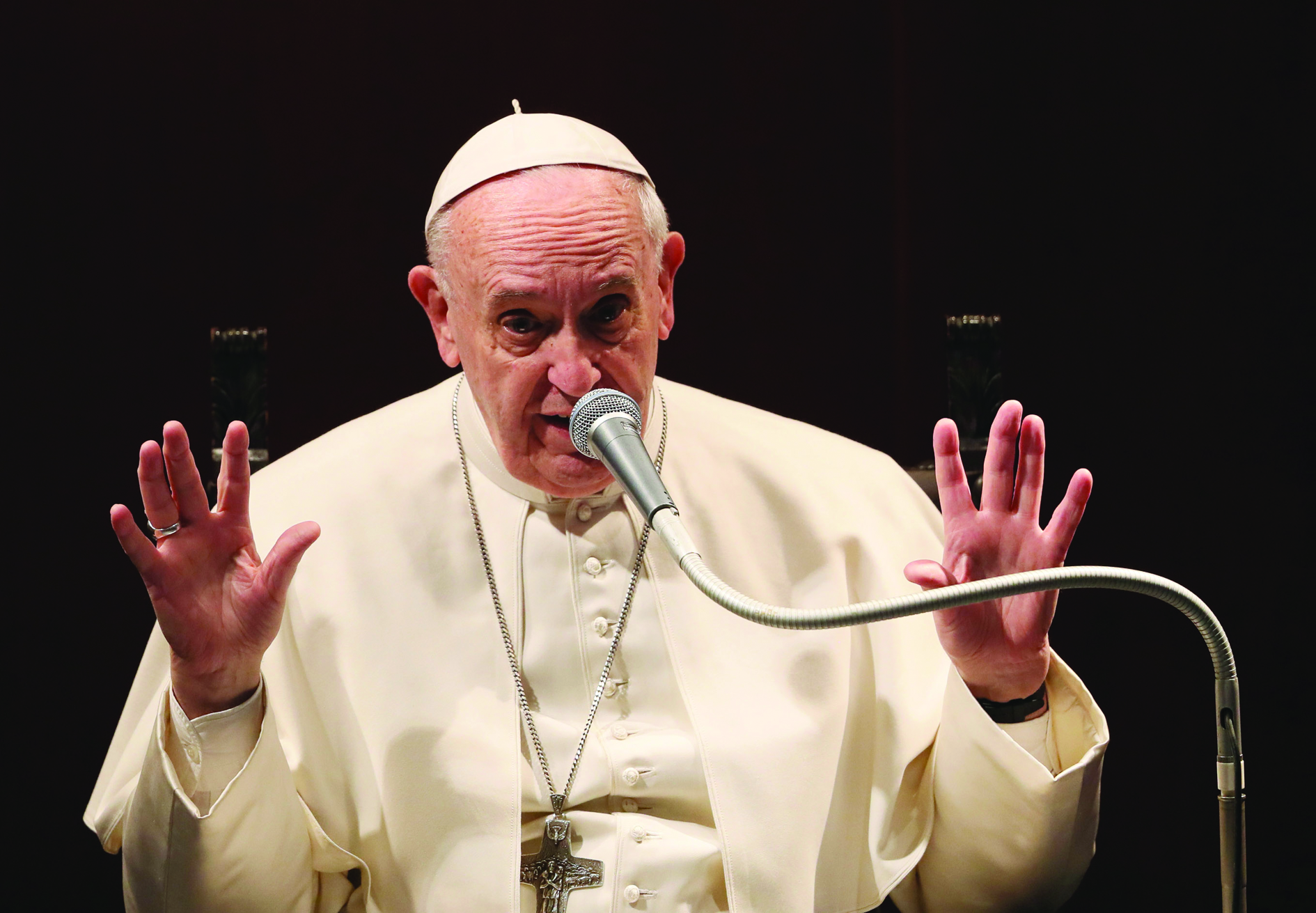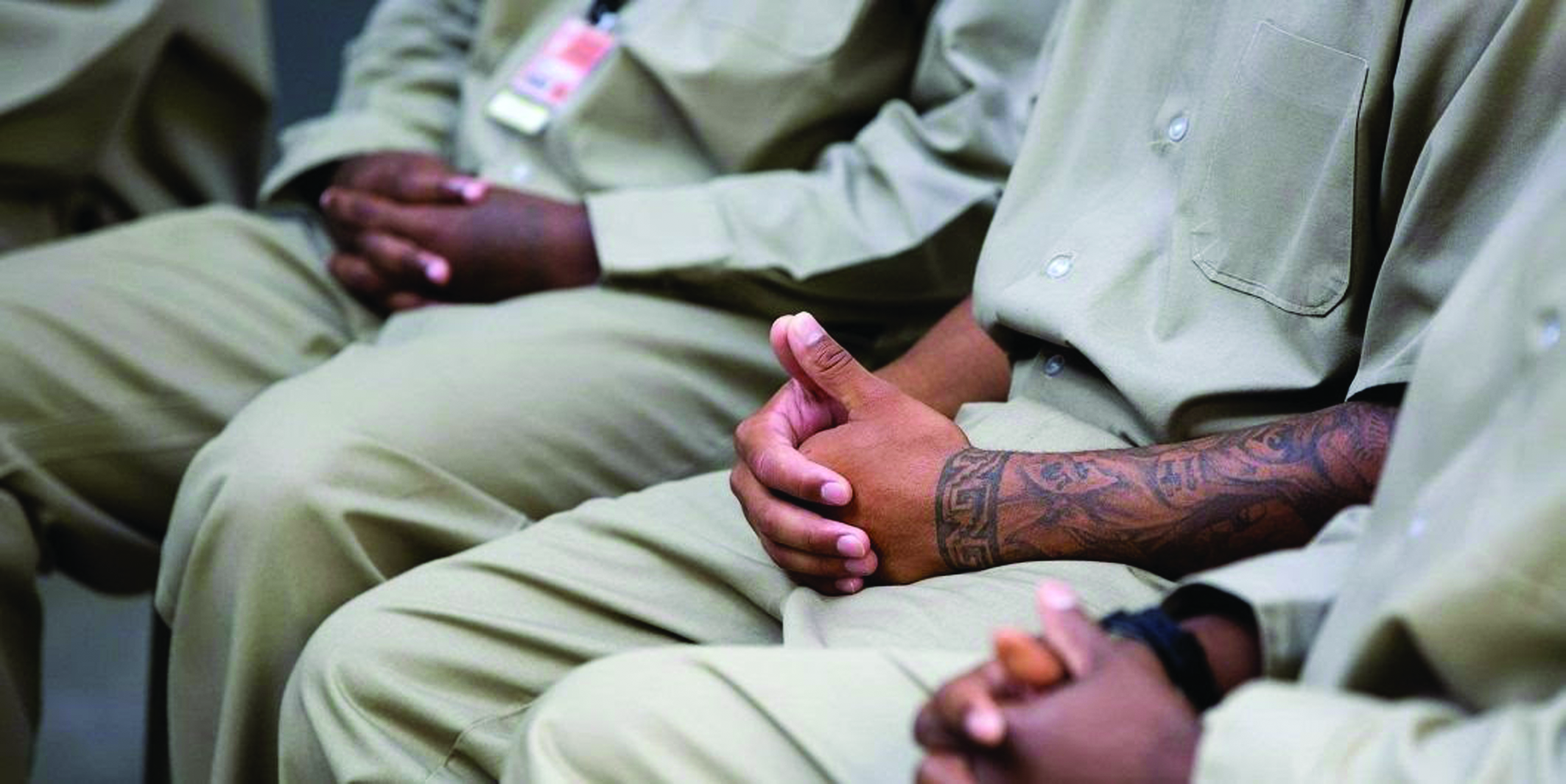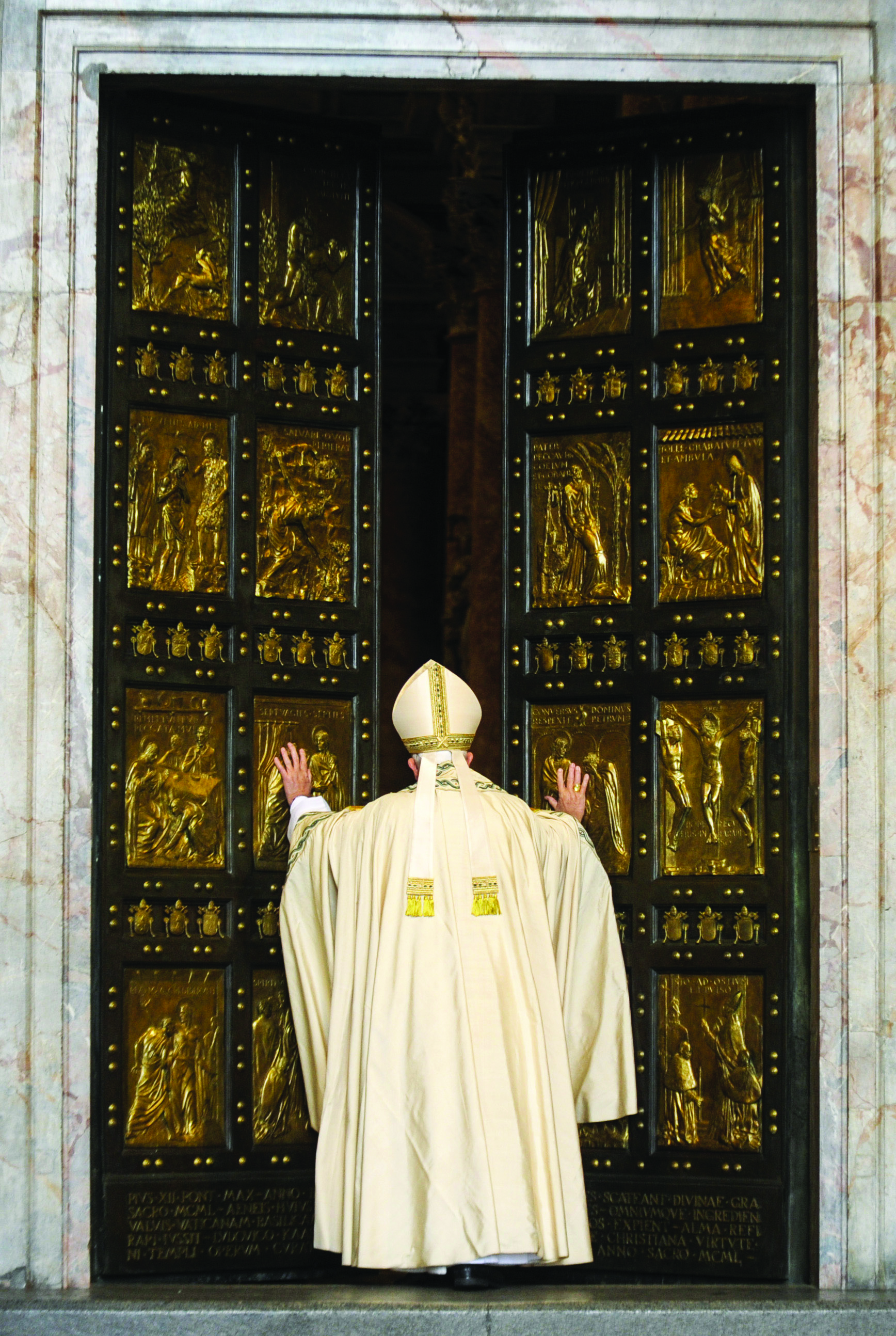John Ogilvie, son of the Calvinist Scottish baron of Drum-na-Keith and the Lady Douglas of Lochleven, was born in 1579 in Banffshire, Scotland. The laird of Drum-na-Keith sent his eldest son abroad so that John could have the full benefit of French Calvinism, and he studied for a few years at Louvain. The boy of 15 was entirely absorbed by an interest in religion, and wanted to be clear about which faith was the true one. In a religiously divided Europe, he became interested in the debates between Catholics and Calvinists. He turned to Scripture and was particularly struck by two texts: “God wills everyone to be saved and come to the knowledge of the truth” (1 Timothy 2:4) and “Come to me, all you who labor and are overburdened, and I will give you rest” (Matthew 11:28). Gradually he began to see that it was the Catholic Church which could accept all kinds of people, and he was impressed by the Church’s many martyrs. Twenty years later, he would himself suffer a martyr’s death. He decided to become a Catholic and in 1596, at the age of 17, he was received into the Church at Louvain, Belgium.
After his reception into the Catholic Church at the Scots College at Louvain, John continued his studies at Regensburg and Olmütz (now Olomouc in the east of the Czech Republic). In 1600, he joined the Jesuit novitiate at Brünn (Brno in the present-day Czech Republic), where he enjoyed the Jesuit education in the liberal arts and sciences as well as religious studies and spiritual formation.
For 10 years he worked in Austria, mainly at Graz and Vienna, before he was assigned to the French province.
Ogilvie was ordained at Paris in 1610 and stationed in Rouen, where he learned of the persecution of Catholics in his homeland. In 1613, he received permission to go to Scotland to minister to the persecuted Catholics there.
Using the alias John Watson, purportedly a horse trader or a soldier back from the wars in Europe, he worked in Edinburgh, Renfrew, and Glasgow. He found that most of the Scottish Catholic noblemen had conformed to the Reformation, at least outwardly, and were unwilling to help a proscribed priest.
Unable to make much of an impression, he went to London to contact one of the king’s ministers and then to Paris for consultation. He was sharply told to return to Scotland, which he did.
In Edinburgh Ogilvie stayed at the house of William Sinclair, a lawyer whose son he tutored. He ministered to a congregation and visited imprisoned Catholics. Eventually Ogilvie was successful in winning back a number of converts to the Church.
Soon he attracted the attention of Archbishop Spottiswoode, once a Presbyterian but now carrying out in Scotland the religious policies of James I and James VI.
He was betrayed by a man named Adam Boyd, who trapped him by pretending to be interested in the faith. He was imprisoned, tortured and forcibly kept from sleep for eight days to compel him to reveal the names of other Catholics. He refused. Steadfastly, he remained loyal to the crown in temporal matters.
After months of torture he was found guilty of high treason for refusing to acknowledge the supremacy of the king in spiritual matters and for refusing to apostasize. He managed to write an account of his arrest and treatment in prison, which was smuggled out by visitors.
When St. John appeared in court at Edinburgh in December 1613, he questioned why Catholics were persecuted. He claimed the right to the faith that had not only shown itself compatible with the order of society, but had been the main factor in the creation of that order and in the birth of the nation. He said, “Neither Francis [of France] has forbidden France, nor does Philip [of Spain] burn for religion but for heresy, which is not religion but rebellion.”

A portrait, painted in the Northern
French town of Douai, of St. John Ogilvie, Roman Catholic martyr.
At his final trial, in a statement reminiscent of St. Thomas More, he told his judges: “In all that concerns the king, I will be slavishly obedient; if any attack his temporal power, I will shed my last drop of blood for him. But in the things of spiritual jurisdiction which a king unjustly seizes, I cannot and must not obey.”
On March 10, 1615, aged 35 years, John Ogilvie was paraded through the streets of Glasgow and hanged at Glasgow Cross. His last words were: “If there be here any hidden Catholics, let them pray for me, but the prayers of heretics I will not have.”
After he was pushed from the ladder, he threw his concealed rosary beads out into the crowd. The tale is told that one of his enemies caught them and later became a devout Catholic.
As a martyr of the Counter-Reformation, John Ogilvie was beatified in 1929. He was canonized in 1976 by Pope Paul VI following the inexplicable and miraculous cure of John Fagan, a working man from Easterhouse in Glasgow, devoted to the then-Blessed John Ogilvie whose advanced cancer vanished after prayer asking for his intercession. St. John Ogilvie was the first Scottish saint since Margaret of Scotland.
We cite from the homily of Pope Paul VI on the occasion of the canonization of Blessed John Ogilvie on October 17, 1976:
“You know that he was a son of the land blessed by the history of other saints dear to the Church, like St. Columba and St. Margaret: he was Scottish; you know that having come to the Continent he resolutely converted to Catholicism; you know that he was a young member of the Society of Jesus, in its original period (the end of the 16th century and the beginning of the 17th) of ardent and fruitful apostolic mission; you know that martyrdom cut short his life at 35 years of age. And it now happens that a mortal citizen of the earth is recognized as an immortal citizen of heaven, that is, he is canonized; joy therefore prevails in faithful hearts, every other feeling is almost dazzled by it, and every other consideration is superfluous to our spiritual joy; he is a Saint, we say, and it is enough for us to admire the figure, to offer him devotion, and to invoke his heavenly intercession.
“The life of the Saint, observed with loving intelligence, is sufficient to reveal many things to us about God’s Kingdom. There is on the well-known Roman hill (the Aventine), a very famous villa for the pilgrim, where when you glance through the small opening of the lock of the door, you see with surprise the outline, against the sky, of the perfect and majestic cupola of the Basilica of St. Peter, almost like a vision from another world.
“In a similar way, the vicissitudes of the life of every Saint allow us to catch a glimpse of Christ, Whom he reveals in a personal and original way. Thus the short biography of the Saint whom we celebrate today, reveals very many things of exceptional interest!
“To begin with, the historical picture, marked by great crises of the various expressions of the Protestant Reformation, Lutheran, Anglican, Calvinist and Presbyterian, checked by the immense and valid hard work of the Council of Trent, and by the intense resumption of Catholic life, often tormented by wars, religious struggles and, also, by decadent morals. Christendom fell apart, and manifested the permanence of incurable confessional divisions, to which the modern ecumenical movement tries to offer some resolute remedy. The figure of our Saint is not comprehensible outside of this agitated spiritual storm.
“It will be sufficient for us to record that the holiness of our hero is characterized by his testimony of devotion to the Magisterium of the Church and to faith in the Mass, the liturgical action that celebrates the Word of God and really renders it present…
“The conclusion of this very simple talk of ours cannot be without a word of ardent satisfaction for you, sons and daughters of Scotland, who have come to this solemn and culminating canonization of the new Saint — the Saint whom you, above all others, have the right to call your own.
“We are happy to recognize in this sympathetic and heroic figure of a man, a saint and a martyr, the symbol of your own religious, strong and generous land. And in St. John Ogilvie we willingly greet a glorious champion of your people, an ideal exemplar of your past history, a magnificent inspiration for your happy future.
“We honor in St. John Ogilvie an outstanding member of that Society of Jesus which has given so many other valiant soldiers like him to the cause of Christ and of civilization.
“In him we jubilantly greet a beloved son of the Catholic Church, a typical citizen of the world who is called to discover the light for its harmony, progress and peace in the faith of Christ.
“Honor to you, representatives of a Scotland that has given to humanity such a great hero of freedom and of faith.”






Facebook Comments